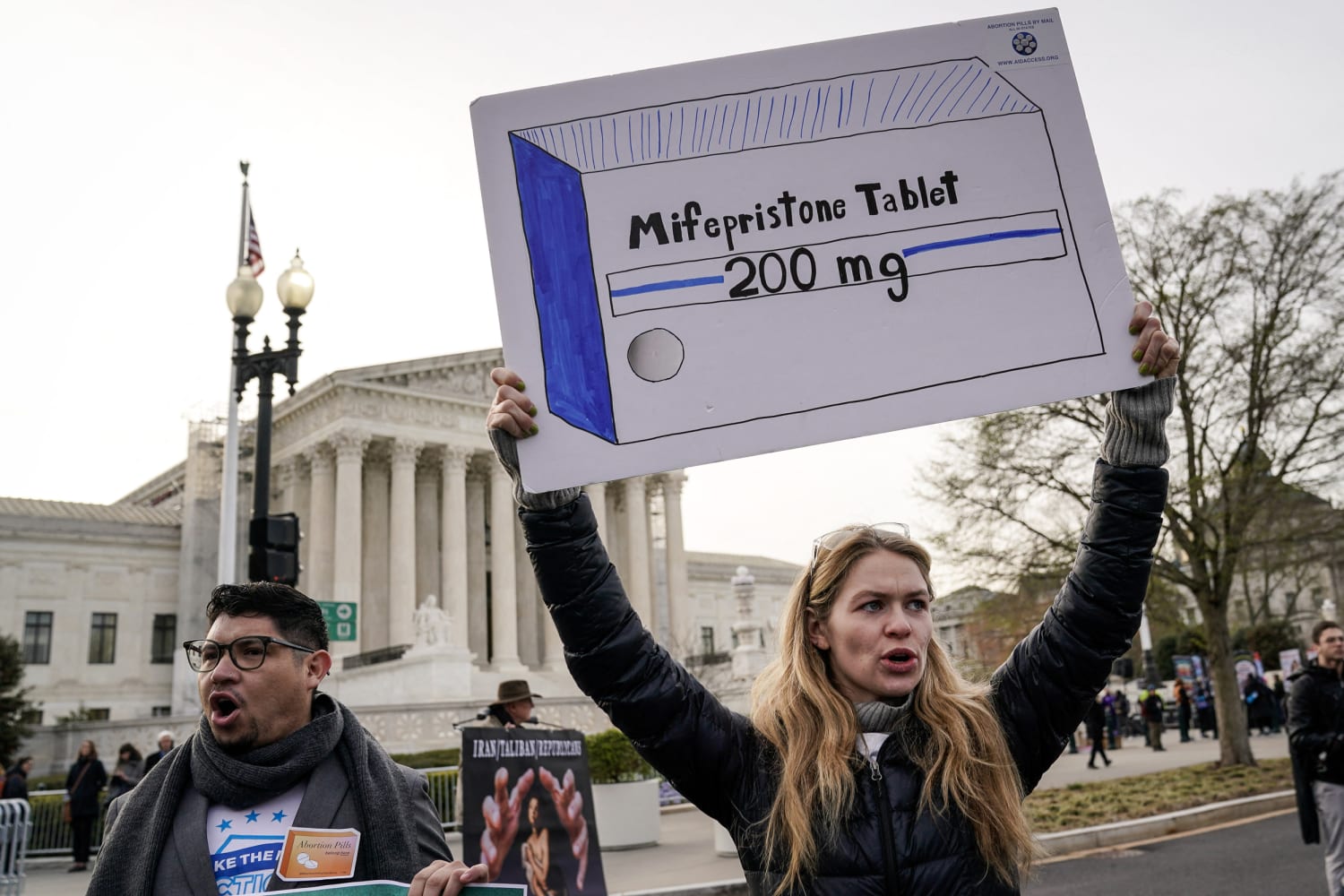U.S. Supreme Court Justice Samuel Alito issued a temporary block on Friday against lower court rulings that had imposed stricter regulations on the abortion pill mifepristone.
Last week, U.S. Judge Matthew Kacsmaryk from the U.S. Northern District of Texas suspended the Food and Drug Administration’s (FDA) approval of mifepristone.
The U.S. 5th Circuit Court of Appeals had initially blocked part of Kacsmaryk’s order, maintaining the FDA approval.
However, the appeals court temporarily reinstated tighter restrictions on the use and distribution of mifepristone, potentially limiting access for women seeking the drug.
Alito’s intervention prevents these restrictive rulings from being enforced until 11:59 p.m. ET on Wednesday.
The Alliance Defending Freedom and the Alliance for Hippocratic Medicine, anti-abortion groups involved in the lawsuit against the FDA, are required to submit their response by noon ET on Tuesday.
With a conservative majority of 6-3, the Supreme Court will now consider whether to uphold broader access to mifepristone while the Biden administration’s appeal proceeds.
Alternatively, the Court may reinstate the restrictions while the legal process unfolds.
The outcome of this legal battle could significantly curtail access to mifepristone nationwide, even in states where abortion remains legal.
Mifepristone, used in conjunction with misoprostol, is the primary method for terminating pregnancies in the U.S., accounting for approximately half of all abortions.

U.S. Solicitor General Elizabeth Prelogar criticized the litigation against the FDA, calling it troubling and unprecedented.
She highlighted that the lower court rulings mark the first instance where judges have overturned FDA drug approval conditions based on disagreements over safety assessments.
Judges Kurt Engelhardt and Andrew Oldham from the 5th Circuit, appointed by former President Donald Trump, rolled back nearly two decades of FDA regulatory decisions on mifepristone.
Their rulings included blocking mail delivery of the drug, reinstating mandatory doctor visits for its distribution, narrowing the permissible timeframe for use to the seventh week of pregnancy, and halting the approval of the generic form introduced in 2019 by GenBioPro.
The legal battle surrounding mifepristone has become increasingly complex and uncertain. U.S. Judge Thomas Rice from the Eastern District of Washington issued a conflicting order directing the FDA to maintain access to mifepristone in 17 states and Washington D.C.
The Justice Department informed the Supreme Court that complying with the 5th Circuit’s restrictions would violate the Washington state district court order.
They further argued that implementing the Texas and appeals court rulings would result in all mifepristone doses on the market being mislabeled, as they wouldn’t align with the FDA’s 2000 approval.
This discrepancy, they warned, could take months to rectify, thereby denying women access to a drug the FDA deemed safe and effective for non-surgical abortion.
Danco Laboratories, the distributor of mifepristone, stated that it cannot market the drug until the FDA completes a series of actions required to comply with the 5th Circuit’s directives.
“The Fifth Circuit’s ruling necessitates extensive FDA approvals for implementation. Without these approvals, Danco cannot legally market and distribute mifepristone,” explained Jessica Ellsworth, the company’s attorney.
